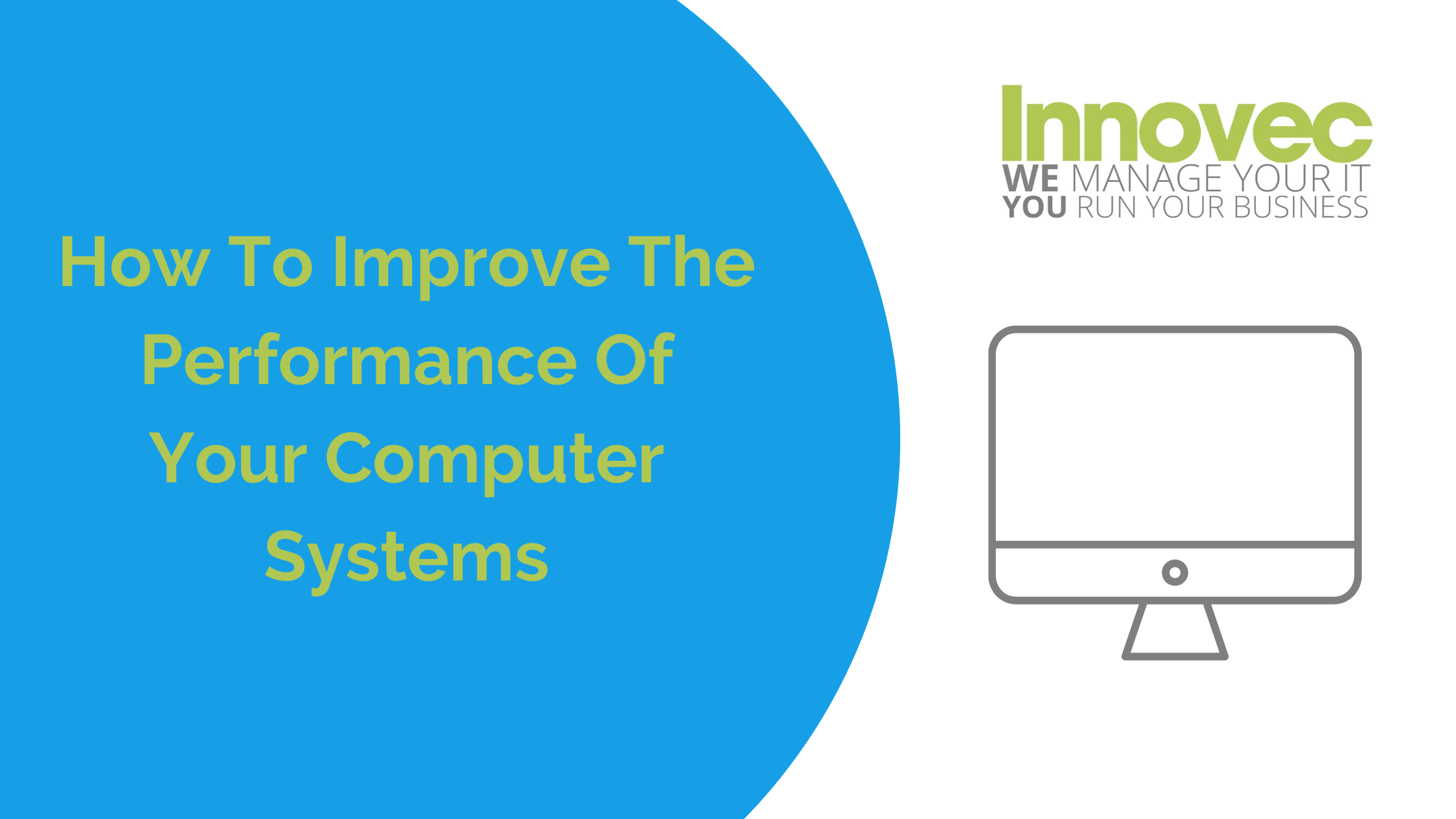
How To Improve The Performance Of Your Computer Systems
Businesses of any size should know how to improve the performance of their computer systems. Computers running slow and freezing will limit how productive you or your team can be. This blog article is a guide to you having the power to improve the performance of your own systems.
We will cover; The risks of NOT improving the performance of your computer systems, The benefits to businesses who improve the performance and finally HOW TO improve them.
The Risks Of Businesses NOT Improving The Performance Of Their Computer Systems
With businesses relying on computer systems for their business to run as they should without hiccups, when the computers performance is less than satisfactory, it can become a real problem with real risks.
Below are the risks of now improving the performance of your computer systems regularly.
- Decreased Productivity
- Increased Downtime
- Slower Processing Times
- Higher Maintenance Costs
- Customer Dissatisfaction
- Loss In Revenue
- Damage Business Reputation
- More Vulnerable To Security Breaches
- Increased Likelihood Of Cyber Attacks
No one wants to experience any of the points above so next lets talk about the benefits of improving the performance.
The Benefits Of Improving The Performance Of Your Computer Systems
Improving your computer systems can provide several benefits;
- Increased Efficiency
- Faster Processing Speeds
- Improved Productivity
- Improved Data Security
- Reduce The Risks Of Cyber Threats
- Reduced Maintenance Costs
- Extend The Lifespan Of The Computer
- Reduce Wear And Tear Of Hardware Components
- Maintain Business Reputation
- Increase Revenue
How To Improve The Performance Of Your Computer Systems
There are several ways to improve the performance of computer systems, including:
- Upgrade hardware components such as RAM or CPU
- Remove unnecessary programs and files
- Use a solid-state drive (SSD) instead of a hard disk drive (HDD)
- Perform regular maintenance such as disk cleanup and defragmentation
- Keep software and operating systems up to date
- Adjust visual settings to optimize performance
- Use an antivirus program to prevent malware and viruses from slowing down the system
If you would like to read more about anti-virus software, have a read at our other article, click here
